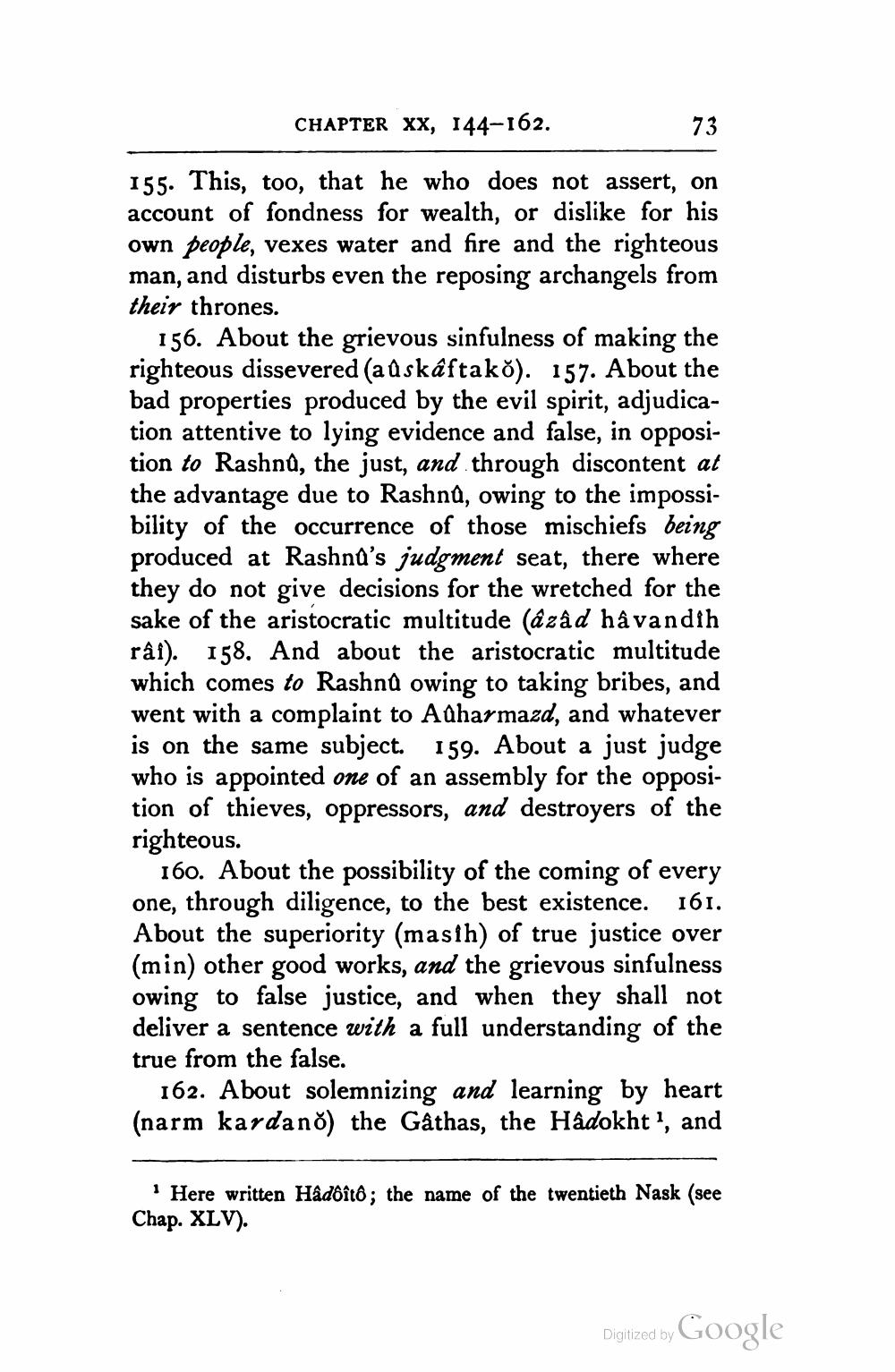________________
CHAPTER XX, 144-162.
73
155. This, too, that he who does not assert, on account of fondness for wealth, or dislike for his own people, vexes water and fire and the righteous man, and disturbs even the reposing archangels from their thrones.
156. About the grievous sinfulness of making the righteous dissevered (all skaftako). 157. About the bad properties produced by the evil spirit, adjudication attentive to lying evidence and false, in opposition to Rashnù, the just, and through discontent at the advantage due to Rashnů, owing to the impossibility of the occurrence of those mischiefs being produced at Rashnu's judgment seat, there where they do not give decisions for the wretched for the sake of the aristocratic multitude (âzâd ha vandth râi). 158. And about the aristocratic multitude which comes to Rashnd owing to taking bribes, and went with a complaint to Adharmazd, and whatever is on the same subject. 159. About a just judge who is appointed one of an assembly for the opposition of thieves, oppressors, and destroyers of the righteous.
160. About the possibility of the coming of every one, through diligence, to the best existence. 161. About the superiority (masih) of true justice over (min) other good works, and the grievous sinfulness owing to false justice, and when they shall not deliver a sentence with a full understanding of the true from the false.
162. About solemnizing and learning by heart (narm kardano) the Gåthas, the Hádokht', and
· Here written Hadoito; the name of the twentieth Nask (see Chap. XLV).
Digitized by
Digitized by Google




